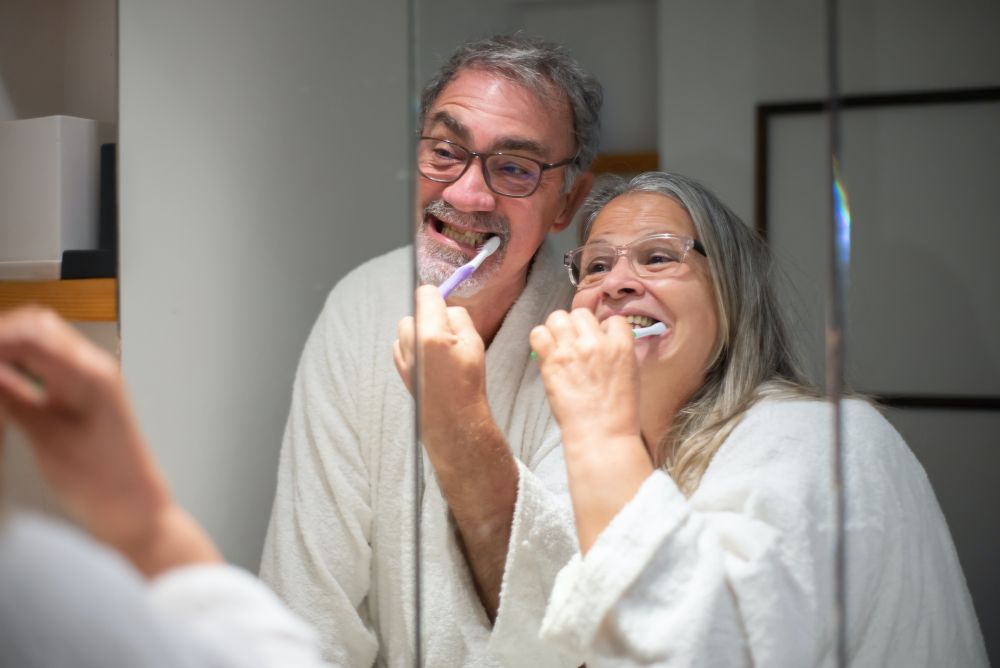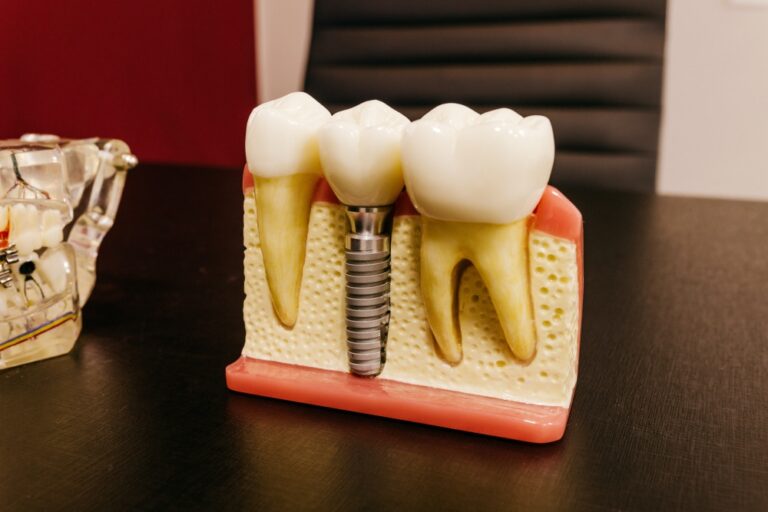Caring for your mouth means caring for the health of your whole body. That’s why rethinking your oral hygiene routine could provide benefits beyond white teeth and fresh breath. It could mean avoiding cardiovascular disease, Alzheimer’s disease, and pregnancy complications. Dr. Chuck Reinertsen discussed the benefits of changing the way you care for your dental health during a webinar you can watch here.
- Decide your “WHY”
Take a moment to think about the motivation behind changing your oral hygiene routine. What matters to you most? For many people, health comes first. Dr. Chuck always says, “Your mouth is the front door to your body.” Let’s keep it clean and healthy!
Some people may want to avoid the dentist. That’s OK! The more time you spend caring for your teeth at home, the less time you’ll spend in the dentist’s chair. The less time you spend caring for your teeth at home, the more time you’ll spend in the dentist’s chair. It’s all about prevention. This is also a way to save money on your dental needs. Who wants to spend money fixing a cavity?
If the way your teeth look matters most to you, that’s great, too. Take the time to clean them. If you want fresher breath, great! Make sure to properly clean in between your teeth, and don’t forget your tongue. Read ahead to learn the proper and most effective techniques for cleaning your mouth.
- Learn oral hygiene techniques
It’s important to remove the bad bacteria from your mouth. Otherwise, it can travel to other parts of your body and lead to infections and health complications. Most people brush their teeth twice a day. Dr. Chuck says you can do it just once a day. That’s right! If you clean your mouth thoroughly for eight to 10 minutes, then once a day is very effective. Here are some of the best ways to care for your dental needs:
- Manual versus electric toothbrush: Using a manual toothbrush is fine, but it tends to take longer to clean your mouth. If you use an electric toothbrush, Dr. Chuck suggests leaving it in place and allowing it to clean each tooth without you doing much work. He suggests spending two minutes on your top teeth and two minutes on the bottom ones.
- Floss: Be sure to use floss correctly. Most people “pop” the floss. You need to wrap it 180 degrees around the tooth and slide it up and down five or six times.
- Directed Water Irrigation: If you don’t like to floss, try using a directed water irrigation device, or a water flosser. Turn the water on high, and aim it directly at the space between each set of teeth for five seconds.
- Proxy Brushes: This is another great alternative to flossing. Buy these tiny brushes at the store and use them to clean between the teeth.
- Add to existing routine
Dr. Chuck says it’s easier to modify an existing habit than to start a new one. Changing how your care for your teeth could make a big difference to your overall health. Help yourself get motivated by taping a picture on your bathroom mirror of something that will get you excited for cleaning your teeth. You could use a picture of a clean, smiling mouth or a picture of money if your hope is to save money in the long run on expensive medical or dental bills.
Another way to modify your routine is to add teeth-cleaning to your shower time. Most people take daily showers — why not clean your mouth while you’re in there? Use a water flosser for the shower immediately after your brush.
Dr. Chuck recommends you start small. Begin with thoroughly cleaning just one tooth. When you’re ready, do one more, then another. Take it one tooth at a time until your entire mouth is clean.
Cleaning your teeth properly on a regular basis is the least expensive way to care for your dental health and overall health. Save time and money by following these tips.




